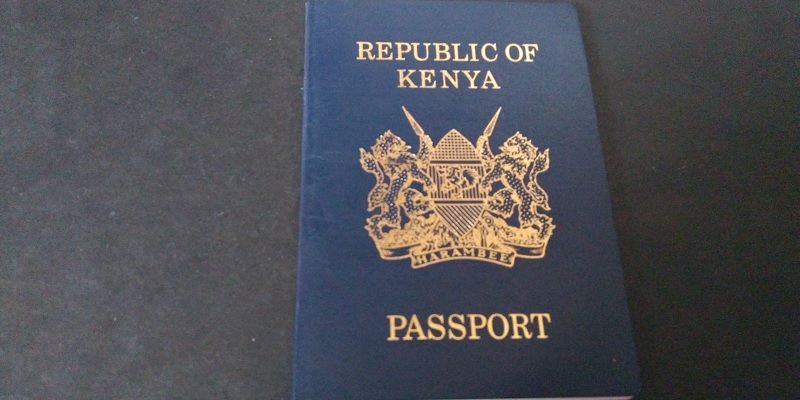Kenya’s Immigration Department has launched new electronic passports to replace the current ones, which will all be invalidated in two years’ time. The new e-passports will have the words ‘East African Community’ in addition to ‘Kenya,’ a development which is line with the anticipated regional integration in East Africa.
The new passports will be categorized as follows; A Series, B Series, C Series, and Diplomatic Passports. They will cost Ksh. 4,500, Ksh. 6,050, Ksh. 7,500 and Ksh. 7,550 respectively. Users will pay for the passports using mobile money or credit cards.
From today, any Kenyan who want to replace their passport will only do so with an electronic one, as the old types are being phased out. After the lapse of two years, all Kenyans are expected to have the new generation e-passports. After two years, the current (old) passports will be obsolete. The new e-passport is fitted with a microchip containing the holder’s information.
The roll out of this next generation e-passport is being undertaken using a technology installed by the Pakistani Government. The phasing out and installation of the new passport will cost the Kenyan government some Ksh. 500 million.
The new passport printing technology installed by Pakistan, will print out a maximum of 2,000 e-passports per day up from the current limit of 800 passports per day. The hastening of the process has made it possible for new applicants of passports to get the document in just eight days and just three days for renewals.
Interior Cabinet Secretary, Fred Matiang’i who was present at the launch event for these new generation passports said: “Kenya has fully complied with standards and guidelines set by International Civil Aviation Organization (ICAO) and EAC Chief of Immigration on travel document design, processing, and issuance.”
Matiang’i went further to praise the new e-passports as highly secured and very hard to forge, given it is also fitted with fingerprint verification system. This system is said to safeguard against multiple passport issuances, thus curbs incidences of identity theft, data skimming, and forgery.
The new e-passports are expected to enable Kenyans to have an easy travel experience with automated border clearances (or e-gates), automated issuance of boarding pass and faster travel arrangements with airlines and immigration checks across the world.
“The deployment of the e-passport system will definitely strengthen the integrity and restore international confidence and rating of Kenya passports,” Matiang’i added.
There are currently only two countries within the East African region that have rolled out e-passports; Kenya and Burundi.



